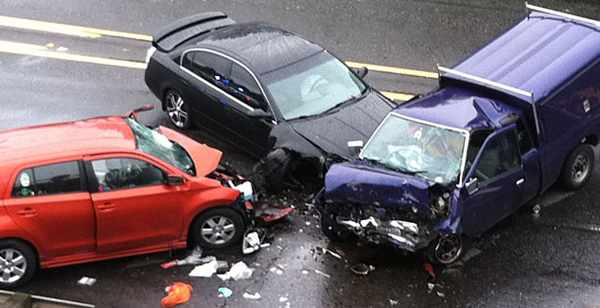Muscle cars, with their powerful engines and iconic designs, evoke a sense of adrenaline and nostalgia for automotive enthusiasts. However, even these high-performance vehicles are not immune to the realities of accidents. Rear-end collisions, a common type of accident, can bring unique complexities when they involve muscle cars. In this article, we will get into the intricacies of rear-end collisions concerning muscle cars, exploring the potential causes, consequences, and steps to take in the aftermath.
The Dynamics of Rear-End Collisions
Rear-end collisions occur when one vehicle strikes the rear end of another. While the mechanics of these accidents may seem straightforward, they can become more intricate when muscle cars are involved.
The powerful acceleration and rapid deceleration capabilities of muscle cars can influence the dynamics of a rear-end collision.
Potential Causes of Rear-End Collisions in Muscle Cars
Sudden Stops: The impressive acceleration of muscle cars can lead to unexpected challenges when the vehicle in front makes a sudden stop. The quick response time of muscle cars can sometimes lead to less time for drivers to react, potentially increasing the risk of a rear-end collision.
Tailgating: Enthusiasts often enjoy pushing the limits of their muscle cars on the road. However, tailgating, or driving too closely behind another vehicle, can reduce reaction time and make avoiding a collision more challenging, especially in stop-and-go traffic.
Brake Fade: Intense acceleration followed by sudden braking can contribute to brake fade, reducing the effectiveness of the braking system. This can be a concern in muscle cars, as their powerful engines and rapid speeds demand robust braking capabilities.
Consequences of Rear-End Collisions in Muscle Cars
Whiplash Injuries: Whiplash is a common injury in rear-end collisions, occurring when the impact causes the head to jerk forward and backward suddenly. The powerful acceleration of muscle cars can exacerbate the forces involved, potentially leading to more severe whiplash injuries.
Damage to High-Performance Components: Rear-end collisions can result in damage to the delicate and performance-oriented components of muscle cars. These components are often crucial to the vehicle’s optimal functioning, and repairs or replacements can be complex and costly.
Frame and Suspension Damage: Muscle cars are known for their precise handling and responsive suspension systems. A rear-end collision can compromise the vehicle’s frame and suspension, affecting its overall performance and stability.
Steps to Take After a Rear-End Collision in a Muscle Car
Prioritize Safety: Safety should be your primary concern. Ensure you and your passengers are safe, and if necessary, move your muscle car to a safer location, away from traffic.
Check for Injuries: Assess yourself and your passengers for injuries. If anyone is injured, seek medical attention immediately.
Exchange Information: Exchange contact and insurance information with the other driver involved in the collision. If there are witnesses, gather their information as well.
Document the Scene: Take photos of the accident scene, including the damage to your muscle car and the surrounding environment. This documentation can be crucial for insurance claims.
Contact Law Enforcement: Depending on the severity of the collision, you may need to contact law enforcement to file a police report. This report can be useful for insurance purposes.
Notify Your Insurance Company: Contact your insurance company to report the accident and initiate the claims process.
Seek Professional Inspection: Even if the damage seems minimal, have your muscle car inspected by a professional mechanic. Hidden damage to performance components may not be immediately apparent.
Legal Consultation: If you believe the accident was not your fault or you’re facing challenges with insurance claims, consider consulting with an Austin, Texas attorney experienced in handling car accidents, especially those involving unique vehicles like muscle cars.
How Staying Informed Can Help You
Rear-end collisions involving muscle cars bring their own set of complexities due to the performance-oriented nature of these vehicles. The powerful acceleration, rapid deceleration, and delicate components unique to muscle cars can influence the dynamics and outcomes of such collisions.
If you find yourself in a rear-end collision involving your muscle car, prioritize safety, document the scene, and ensure professional inspection of your vehicle. Being informed and taking the appropriate steps can help you navigate the aftermath of the collision and protect your investment in your beloved muscle car.

